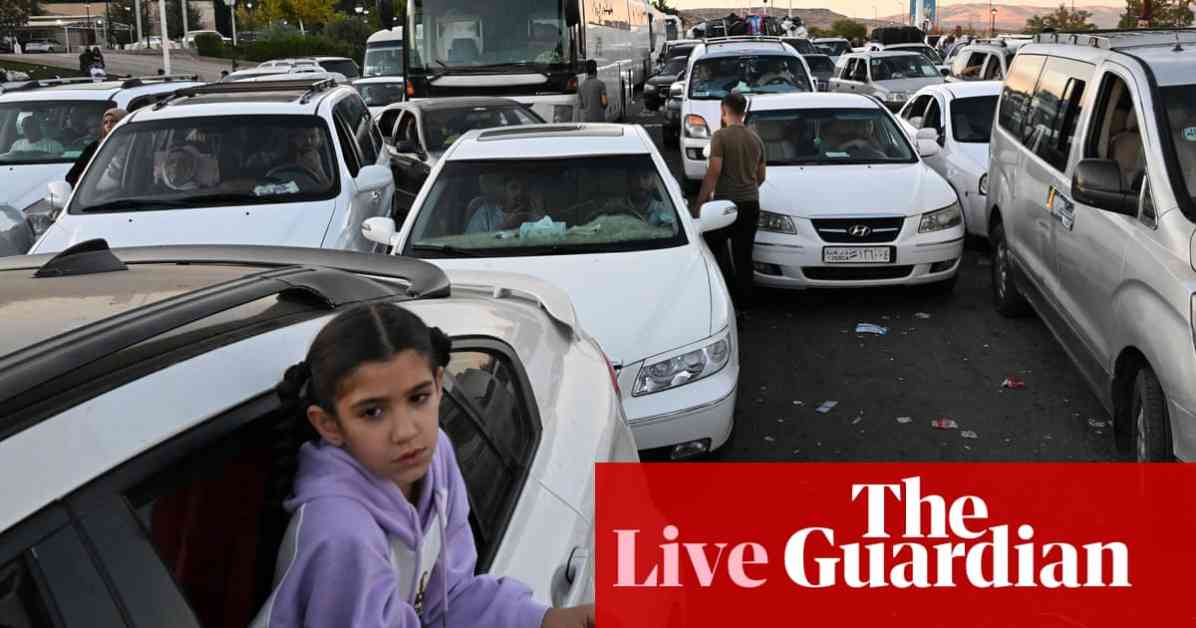Israel Rejects US-French Ceasefire Plan for Hezbollah Conflict
Israel’s foreign minister, Israel Katz, has firmly rejected the proposed 21-day ceasefire between Israel and Hezbollah put forth by the US and France. In a statement posted on social media, Katz declared, “There will be no ceasefire in the north. We will continue to fight against the terrorist organization Hezbollah with all our might until victory and the safe return of the residents of the north to their homes.”
Prime Minister Benjamin Netanyahu’s office also dismissed the ceasefire proposal, stating, “The news about a ceasefire – not true. This is an American-French proposal, to which the prime minister did not even respond.” Instead, Netanyahu instructed the Israel Defense Forces (IDF) to continue the fighting with full force.
The intense bombing campaign initiated by Israel on Monday has resulted in over 600 casualties and thousands of injuries in Lebanon. Approximately 60,000 Israelis have been forced to flee their homes in northern Israel due to the ongoing conflict with Hezbollah and other anti-Israeli forces in Lebanon. Similarly, tens of thousands of Lebanese have been internally displaced on their side of the UN-drawn blue line that separates the two countries.
Israel’s far-right finance minister, Bezalel Smotrich, who has been vocal about his opposition to the creation of a Palestinian state, also rejected the ceasefire proposal. Smotrich emphasized, “The campaign in the north should end in one scenario – crushing Hezbollah.”
In response to Israel’s military actions, Lebanese authorities reported at least four additional casualties, including 23 Syrians, predominantly women and children, in an Israeli strike on Younine in Lebanon. The US and France have advocated for a temporary ceasefire to pave the way for broader negotiations, expressing concerns about the escalating conflict and its impact on civilians.
Subheadings:
Israel’s Rejection of Ceasefire Proposal
Humanitarian Crisis in Lebanon
International Efforts for Peace
The situation in Lebanon has been described as a massive displacement crisis, with over 70,000 individuals seeking refuge in shelters. The country, already reliant on international aid, is struggling to provide assistance to those in need amidst the ongoing conflict. The displaced individuals are resorting to renting apartments or staying with friends and relatives as they await resolution.
An Israeli strike targeting a small bridge connecting Syria and Lebanon raised concerns about the accessibility of the crossing. Meanwhile, Israel continues to justify its military actions as targeting “Hezbollah terror targets” in Lebanon, resulting in significant casualties and displacements on both sides of the border.
Efforts for a ceasefire have been met with resistance from key figures in Israel, who prioritize the complete elimination of Hezbollah over temporary peace agreements. The rejection of the proposed ceasefire underscores the deep-rooted tensions and complexities of the conflict, with both sides unwilling to back down in their pursuit of victory.
As international pressure mounts for a cessation of hostilities, the UK’s foreign secretary and other diplomats are advocating for a coordinated approach to de-escalate the situation and facilitate negotiations. The urgency to prevent further loss of life and displacement is driving diplomatic efforts to find a sustainable solution to the Israel-Hezbollah conflict.
The ongoing conflict in the region has far-reaching implications for the stability of the Middle East, underscoring the need for dialogue and compromise to prevent further escalation. As the situation continues to unfold, the international community remains vigilant in its pursuit of peace and stability in the region.












